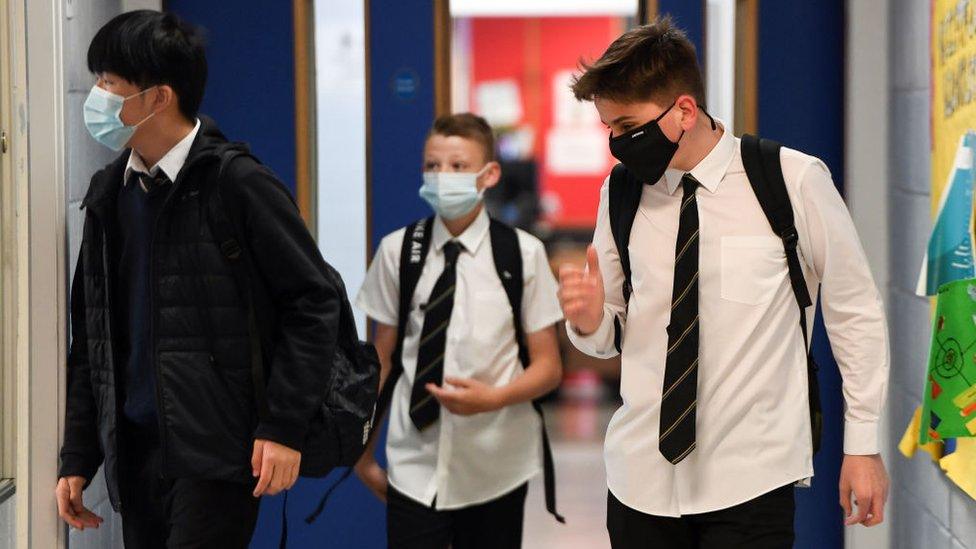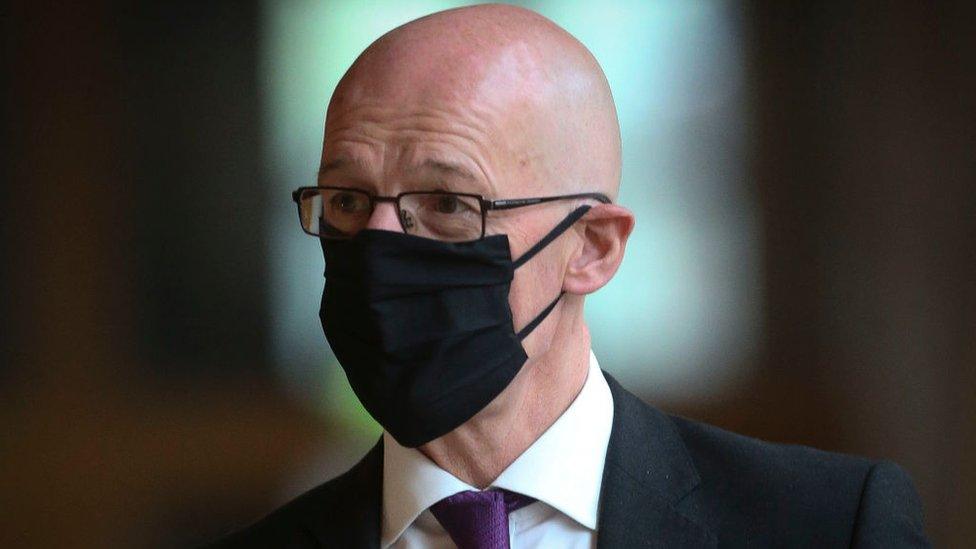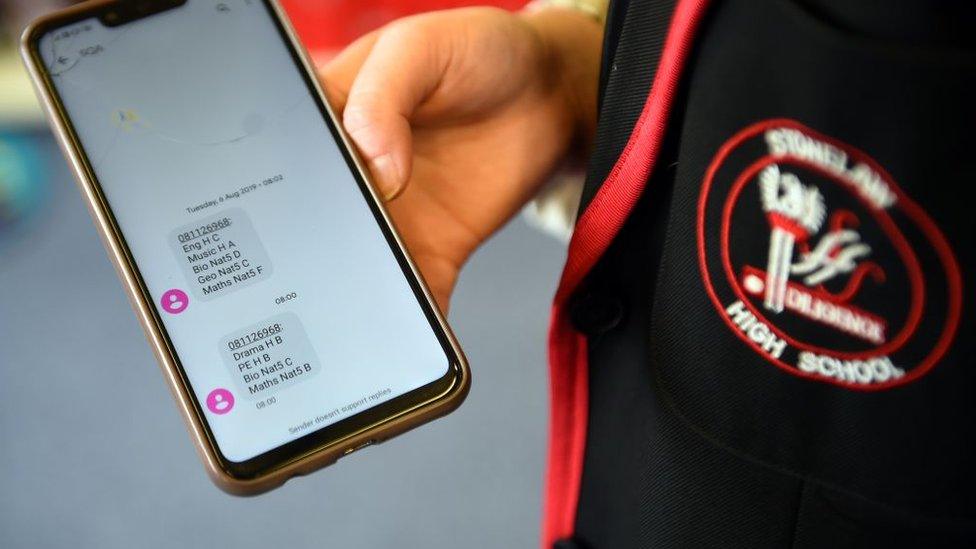Covid in Scotland: No extension to Scottish school Christmas holidays
- Published
- comments

There will be no extension to Scotland's school Christmas holidays, the country's education secretary has confirmed.
Talks had been held about potentially shutting all schools on 18 December and reopening them again on 11 January.
But there had been concern about the impact on teaching time and the difficulties it could cause parents.
The EIS, Scotland's largest teaching union, said the decision not to extend the holidays would anger many teachers.
And it accused the government of "once again showing a complete disregard for the concerns and welfare of teachers".
The union had wanted schools to move to remote learning in the final week of term to ensure senior staff did not find themselves having to deal with Covid outbreaks during the holidays.
This would also have minimised the risk of staff, pupils and parents having Christmas ruined by infections, the union had argued.
Holiday dates in Scotland vary between different council areas, with many schools due to finish on 22 or 23 December before returning between 5 and 7 January.
A memo that was leaked to the Daily Record newspaper, external last week suggested that the government was considering a national extension to the holidays.
It would have seen schools either remaining closed or introducing remote learning for a temporary period.
The proposal was designed to limit the spread of Covid after families get together for Christmas.

Mr Swinney said the health advice he had been given suggested that pupils would be safer in school
Opposition parties had accused the government of "dithering" over the decision, which they said was causing uncertainty for pupils, staff and parents.
In a letter to the Scottish Parliament's education committee, external on Thursday morning, Education Secretary John Swinney said: "I have reached the decision not to make any changes to the planned Christmas and new year holiday dates".
Mr Swinney said there had been a "range of views" when the proposal was discussed at the Education Recovery Group, which includes councils, teaching unions and other organisations.
'Greater risk'
He added: "The public health advice that I received is to keep schools open as planned as the controlled school environment is more preferable to social mixing outside of school if schools are closed early.
"In addition, vulnerable children may be at greater risk if they are out of school for an extended period."
Mr Swinney also said he had taken into account the need to provide childcare for key workers, and the "significant difficulties" an extension to the holidays could cause for working parents.
And he said the advice he had received continued to be that there is no evidence that schools and early learning settings are driving transmission of the virus, and that there is "no clear rationale for disrupting children's education."

Mr Swinney is facing calls to cancel next year's Higher and Advanced Higher exams
Mr Swinney also confirmed that there would be a staggered return for university students after the holidays, and that students would not be returning in the "congested period" directly after Christmas and new year.
He said he was still in discussions on the precise nature of the return and that he would set out the details as soon as possible.
Meanwhile, the Scottish Greens have repeated their call for the government to cancel Higher and Advanced Higher exams next year and replace them with a "robust system of continuous assessment".
The government has already cancelled next year's National 5s, with a final decision on whether or not to have Higher and Advanced Higher exams due to be made by the February break.
The party's co-leader Patrick Harvie said it was clear that the academic year was being severely disrupted, and highlighted the case of a pupil who has already had to self-isolate three times yet faces prelim exams early next year.
He added: "It's long past time the first minister gave teachers and young people the clarity they need and accepted that Higher and Advanced Higher exams cannot go ahead in the coming year."
First Minister Nicola Sturgeon told the Scottish Parliament on Thursday that the government was considering "very, very carefully" whether the exams should go ahead, and appeared to suggest a decision could be made sooner than February.


